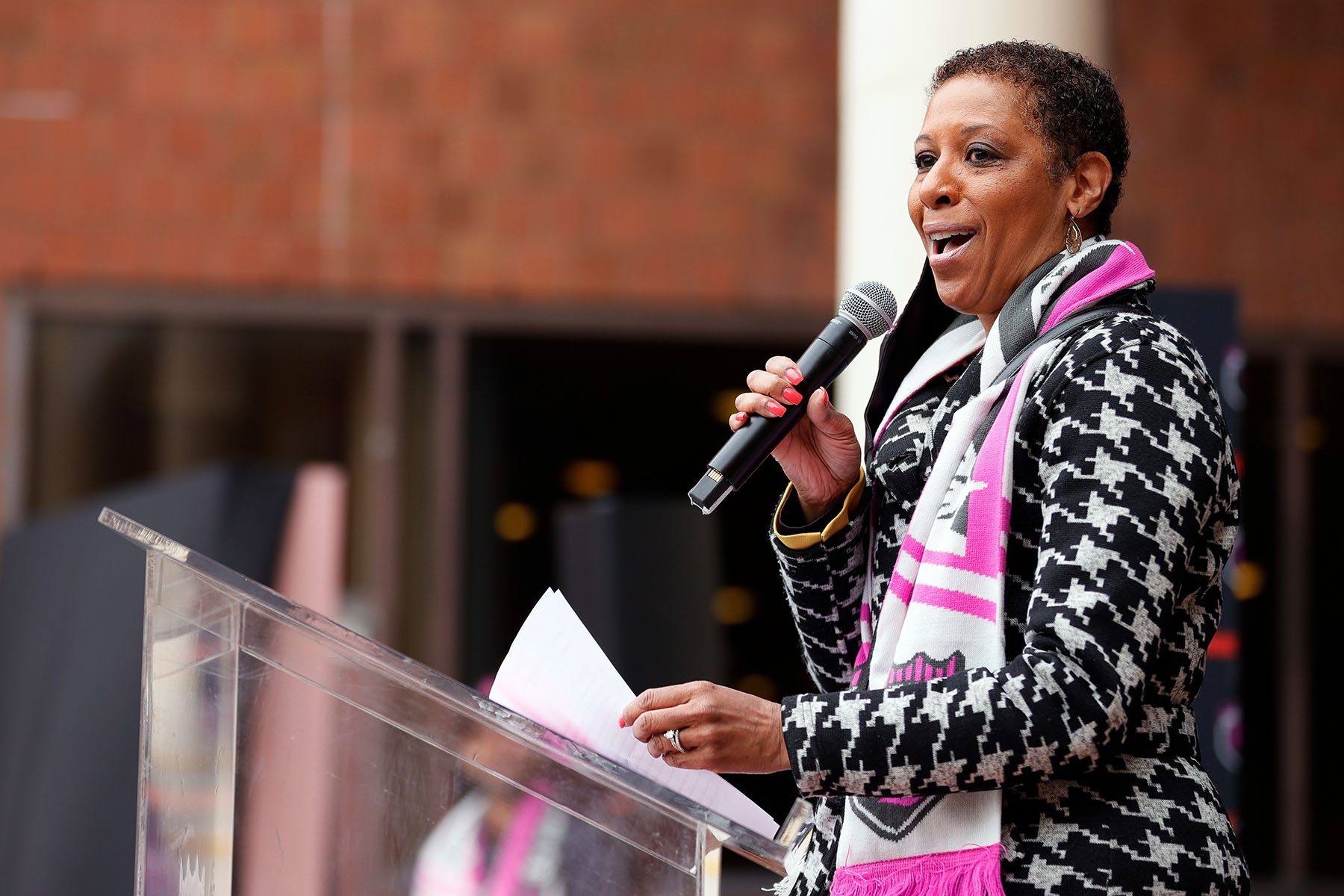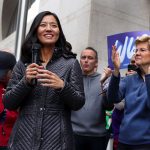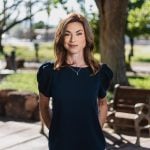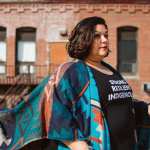When the 51 members of the New York City Council convene in January, it will be the first time women — 31 of them, more than double the number before the November election — make up the majority.
The significance of this representation is not lost on Shahana Hanif. Not only will she be the first woman council member to represent her district in Brooklyn, she will also be the first Muslim woman elected to the council. More than 768,000 Muslims live in America’s largest city.
Hanif hopes to bring her lived experiences to policy discussions around policing and surveillance tactics that have disproportionately impacted her community following the September 11 attacks. The 30-year-old was in grade school when they happened.
“I think it’s significant that the first Muslim woman coming in is cognizant about the ways in which surveillance continues to be a part of our daily life, part of our absolute daily life in every single institution,” she said. “So I will continue to talk about that, and how critical it is to end all warrantless surveillance as a top priority.”
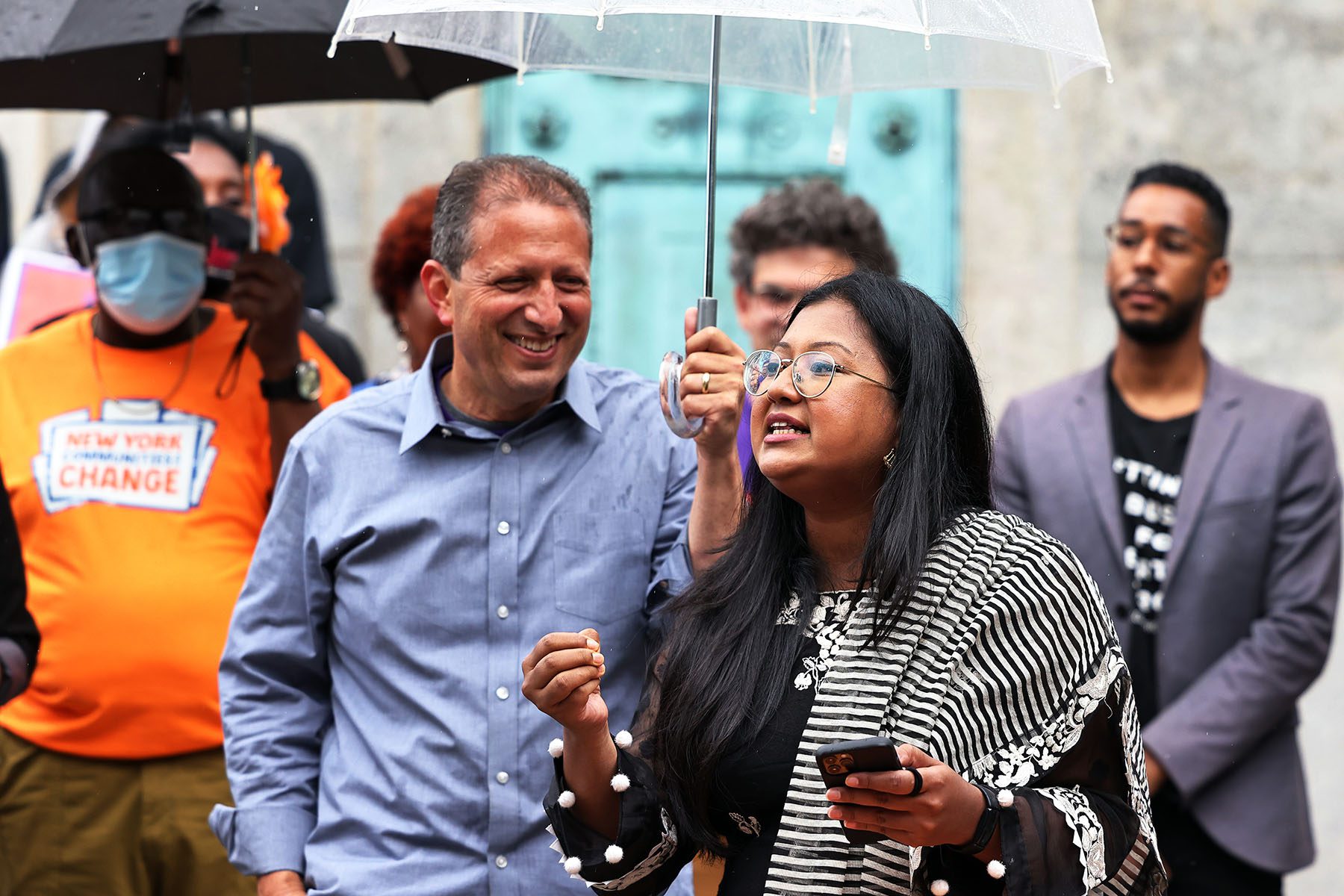
The newly elected council, whose members were sworn in throughout December, includes a series of firsts for the council in gender and racial demographics. They will be up for reelection in 2023.
Several women will represent districts that have only ever had men as council members. The council will have a record five Asian Americans and a historic six out LGBTQ+ people. The number of mothers is expected to increase drastically, from a reported two to at least 11.
The change did not happen unassisted. Jessica Haller is executive director of 21 in ‘21, a nonprofit group co-founded in 2017 by former NYC women city council members that endorsed more than 70 women candidates in 2021. She credited the group and its network of sister organizations for prioritizing candidates who best represent their districts.
“Achieving gender parity and representation was not going to happen organically,” she said. “And that was evident over the last 10 years in our city, and we needed to put a focus to it.”
Already, the collective power of a majority-women council is making a difference. In mid-December, many of them gave their public support for council speaker — a powerful leadership position that determines policy priorities — to Councilmember Adrienne Adams. Following the vote on January 5, she is expected to be the first Black woman in the role.
Eric Adams, the newly elected Democratic mayor who has no formal role in the internal council vote for speaker, in early December threw his public support behind Councilmember Francisco Moya. That support prompted organizing groups, including 21 in ‘21, to criticize the behind-the-scenes politicking, noting that their group and several others had campaigned for a woman to lead the council.
Several council members, including Hanif, released a statement calling for the next speaker to be a woman.
“Folks are ready and primed for a multiracial democracy,” she told The 19th. “And so through the campaign, I really took that into my messaging in proclaiming a vision for an anti-racist feminist city. Not just women led, but feminist. Where we’re dismantling the ways in which status quo ‘old boys club’ projects go, and how governance has been happening, and to dismantle that and to bring compassion and care into our politics.”
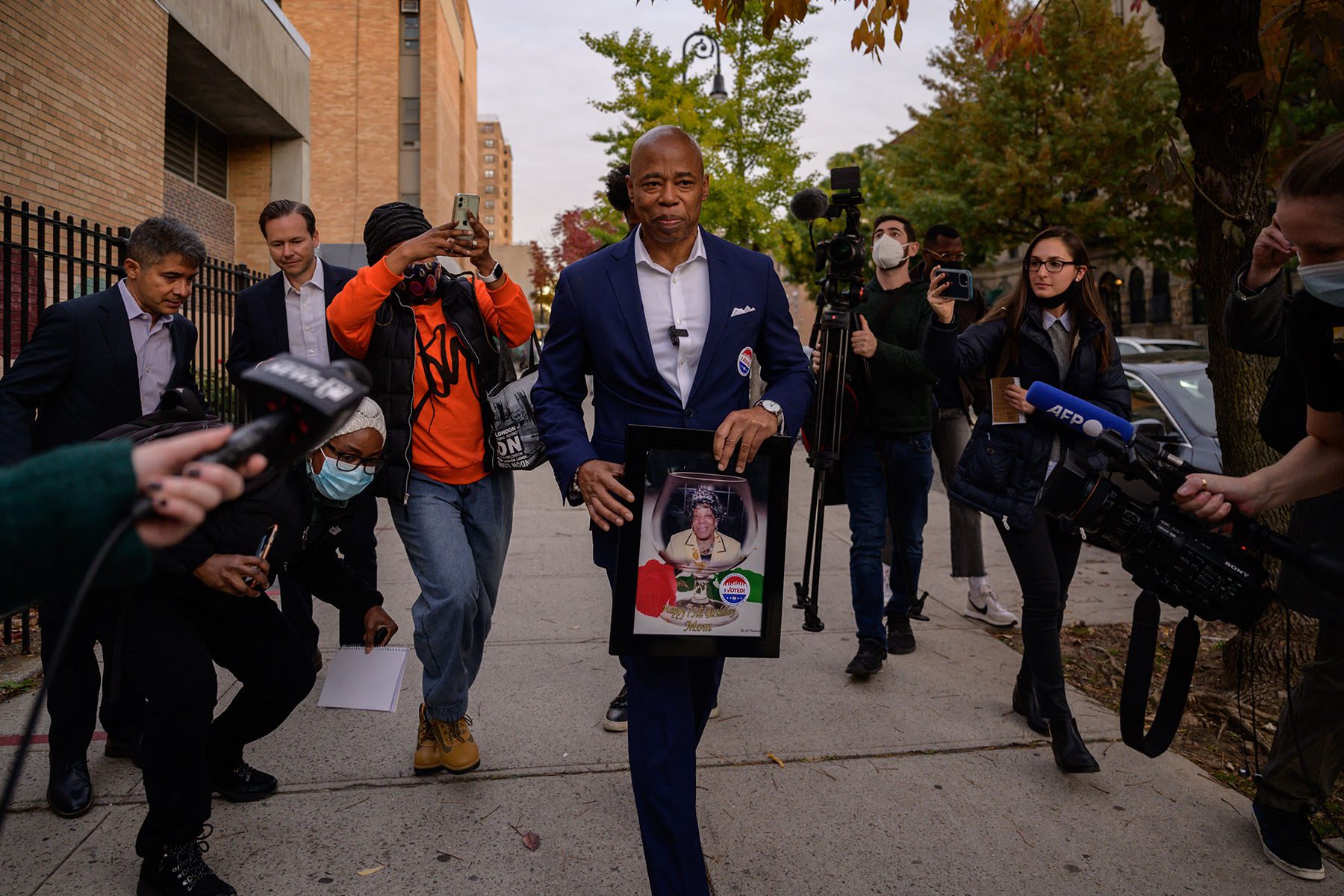
After a back-and-forth battle, Adrienne Adams announced that she had enough support on the record to be elected speaker. She released the names of 33 council members who committed their support to her speakership. Of those supporters, 24 were women.
Haller credited the new council members and the work of organizing groups like 21 in ‘21.
“If it weren’t for a majority-women council, the chances of this happening would have been much lower,” she said, “And if it weren’t for the power building that 21 in ‘21 has been doing for four years — with Latina women and Asian women and Black women and LGBT women and Jewish women and Muslim women — if we hadn’t been doing the power building, the coming together here would have been a lot more challenging and difficult.”
In late December, Mayor Adams announced an all-women slate of deputy mayors. Haller said that in 2022, the organization plans to recruit and organize for a wider range of elected positions, including borough presidents, mayor and other local offices. She said the goal is to continue building on women’s representation.
“We’re building a pipeline here,” Haller said. “… We are now on the scene building political power for women in New York City.”
The policy priorities of the new council will test assumptions about what a women-led governing body will do once in power. Already, some of the most progressive members have publicly challenged the mayor on his plans for solitary confinement in city jails.
Crystal Hudson, one of two Black queer women joining the council for the first time, also has housing on her mind. A few weeks after her election, she was protesting along with tenants at an apartment whose residents were on a rent strike and calling for better living conditions. She has supported the tenants for months, and didn’t want to wait until she was sworn in to be there for them — at a time of uncertainty around housing protections because of the pandemic.
“I want to make sure that we’re doing everything we can to keep people in their homes,” said Hudson, whose district is in Brooklyn. “I think evicting people from their homes is a very disproportionate consequence or punishment — whatever you want to call it — considering people might be having a hard time paying their rent for a number of reasons.”
Hudson said there were a lot of grassroots community organizations that helped elect this group of women to the council.
“We had a lot of people of color, a lot queer people, a lot of women, a lot of young people — all working on these campaigns,” she said. “I think that in and of itself is a historic feat.”
Linda Lee, the first woman elected to her district in Queens and one of two Korean-Americans to be elected to the council for the first time, is interested in strengthening home-based services for older New Yorkers. She noted that women are often the caregivers.
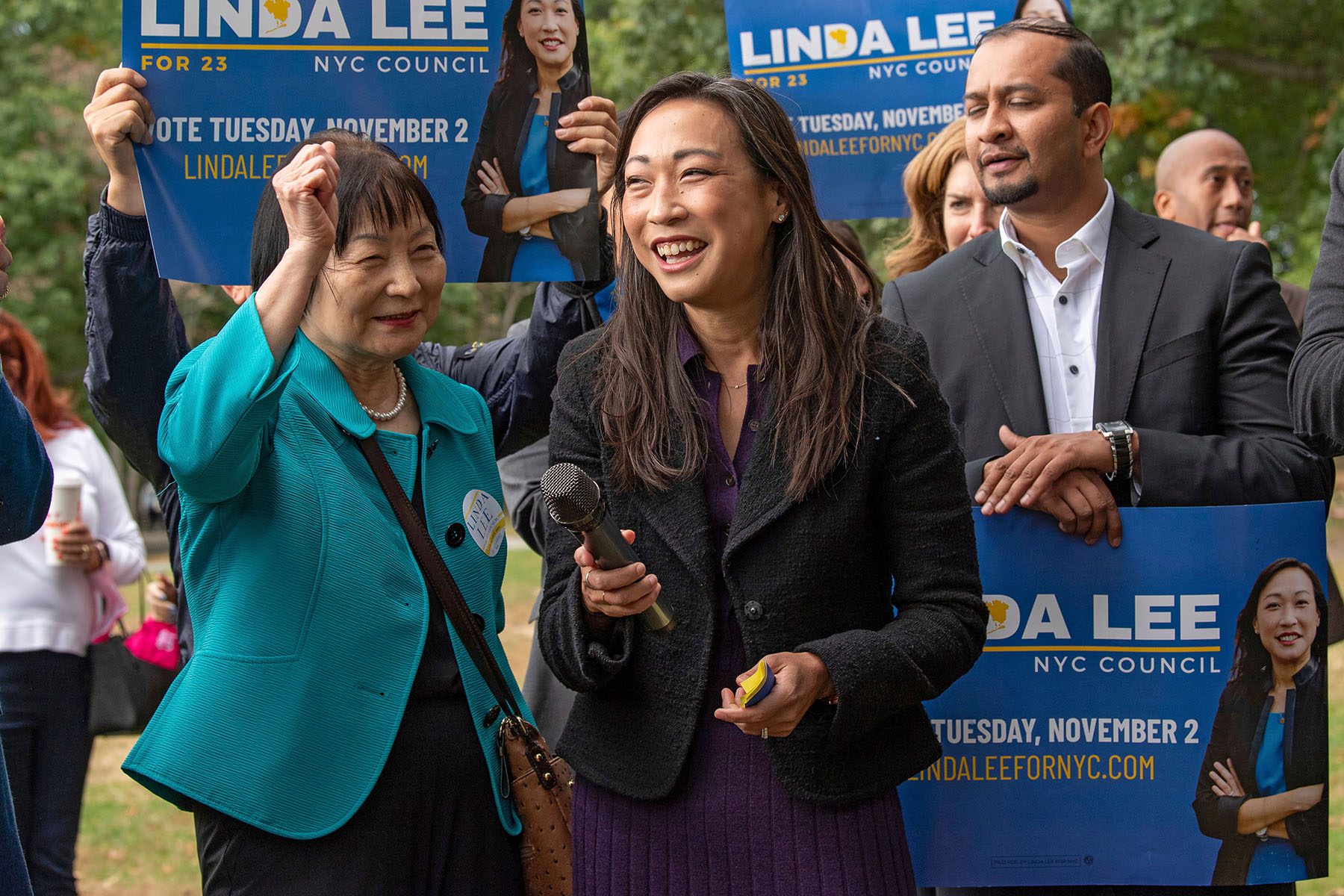
“This whole notion and sense of caregiving, and being the caretakers for not just your own immediate family, but also for your parents’ generation, is a burden,” she said. “I think that is more strongly felt amongst women.”
Lee said a lot of Asian communities have been reaching out with invitations for her to attend or speak at holiday gatherings. She believes many of them feel pride at her election.
“They feel like it’s like one of their children that won, or someone from their family who won,” she said. “… There’s an excitement also in my district in particular, because they’re like, ‘OK, for the first time we have someone who really has that lived experience, coming from an immigrant family, who understands that perspective and who can really be that voice for communities.”
Amanda Litman, co-founder of the Democrat recruitment group Run for Something, hopes the council takes into account the full breadth and diversity of the city.
“It’s not just about race, it’s not just about class, it’s not just about gender — it’s the fact that our city’s governing body really encompasses all of that, and that is a lot of people who come at it from a lot of different perspectives,” she said. “And that allows for messier, harder and ultimately, I think, more productive legislative outcomes.”
Hanif said she thinks of the women who paved the way for her to be elected to the council. She keeps thinking of the significance of a Muslim woman in power and the joy that comes from that.
“Who would have thought that like this Bangladeshi Muslim woman from Brooklyn was going to be in the chamber? It just baffles me every time I think, the Founding Fathers, did they ever anticipate how down the line politics will change and shift and transform?”
